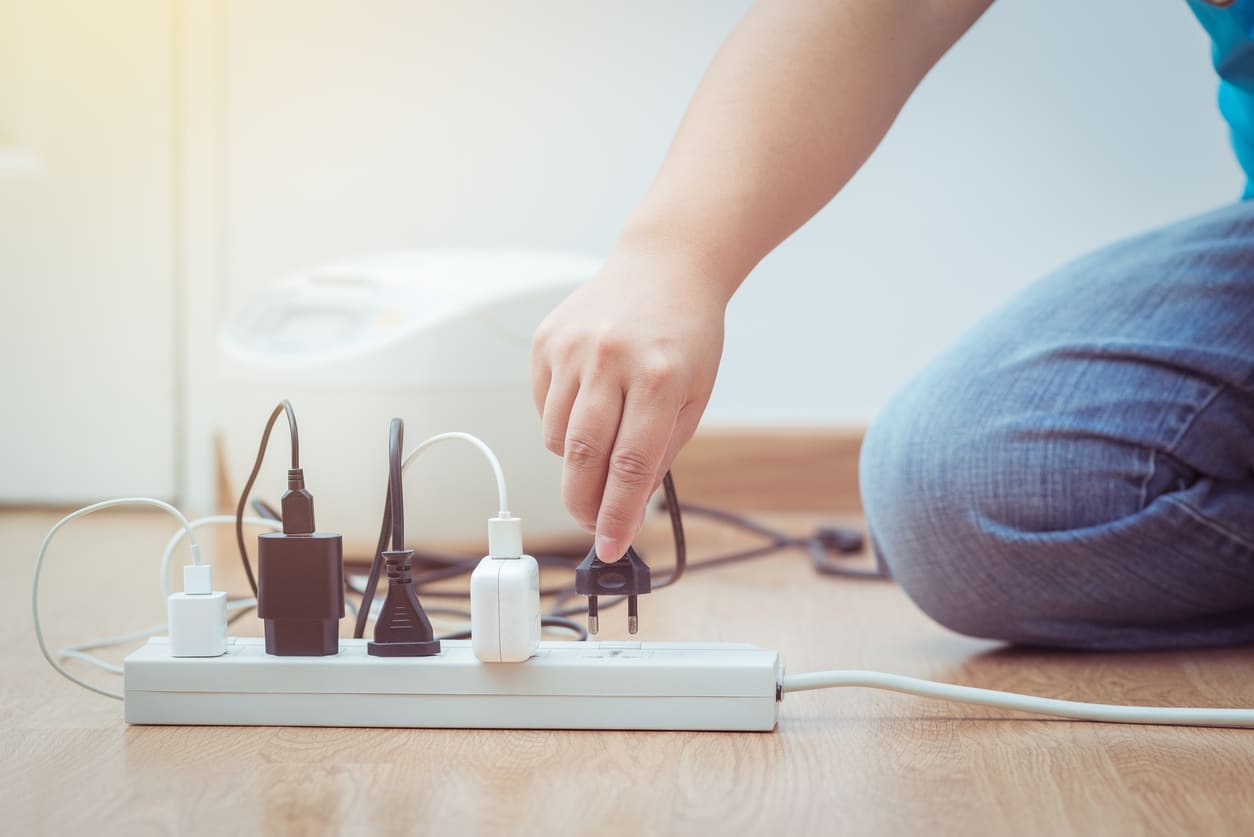
Because voltage surges can be more damaging than ever, a surge protector should be standard equipment to protect your central air conditioner. Today’s A/C units integrate sensitive electronic technology including digital processors, chips and circuit boards. In addition, the air conditioner’s compressor — the most expensive single component in the system — is a powerful electric motor with circuitry that is also vulnerable to voltage surges. After your house and automobiles, the central HVAC system is typically the largest investment on the property. Protecting it from voltage surges should be a priority.
What Is The Danger?
Transient voltage irregularities associated with common incidents on the local utility grid such as brownouts and blackouts can permanently damage electronics in the air conditioner. Natural events such as lightning strikes are even more threatening. Lightning doesn’t have to directly strike your home to trigger a damaging surge. A strike as far away as one half-mile can send damaging high voltage through the utility power lines into your household circuits and HVAC system. Voltage irregularities including surges can also originate from sources within your house, such as malfunctioning appliances or short circuits in wiring.
How Can You Guard Against It?
Because your central air conditioner is connected directly to its circuit, a plug-in protector, such as that utilized to protect smaller electronic devices, is of no use. To protect the central A/C, a dedicated surge protector should be hard-wired in one or, ideally, two locations:
- At the home’s main electrical panel, a whole-house surge protector can be installed to protect all household circuits from voltage spikes entering via the main utility power line. Alternatively, protection can be installed only on the circuit that serves the air conditioner alone.
- Because a surge protector installed at the main electrical panel doesn’t guard against voltage spikes that originate inside the house, for maximum protection a second dedicated unit may be installed at the air conditioner power disconnect switch.
For more on the benefits of a surge protector to prevent expensive damage to your central air conditioner, contact the HVAC professionals at Jackson & Sons. Keeping homes and businesses comfortable for 43 years.
Our goal is to help educate our customers in Eastern North Carolina (including Wayne, Johnston, Greene, Lenoir, Pitt and Duplin Counties) about energy and home comfort issues (specific to HVAC systems).
Credit/Copyright Attribution: “Name”